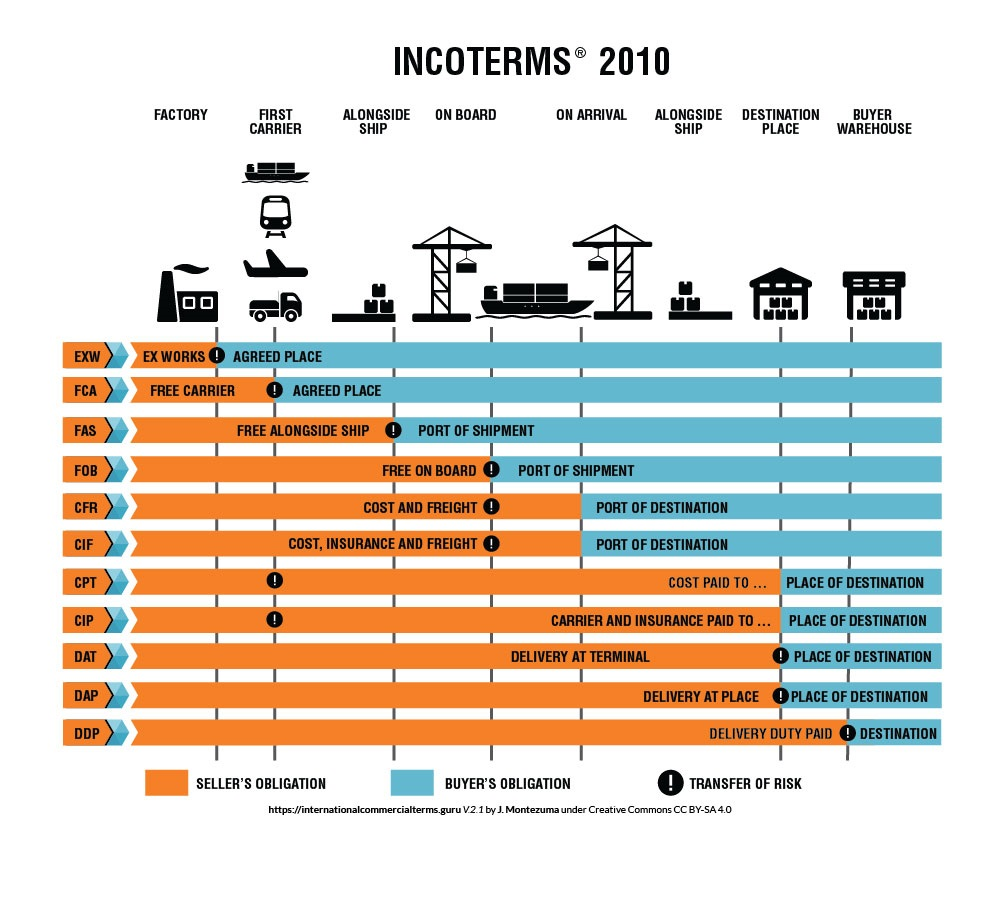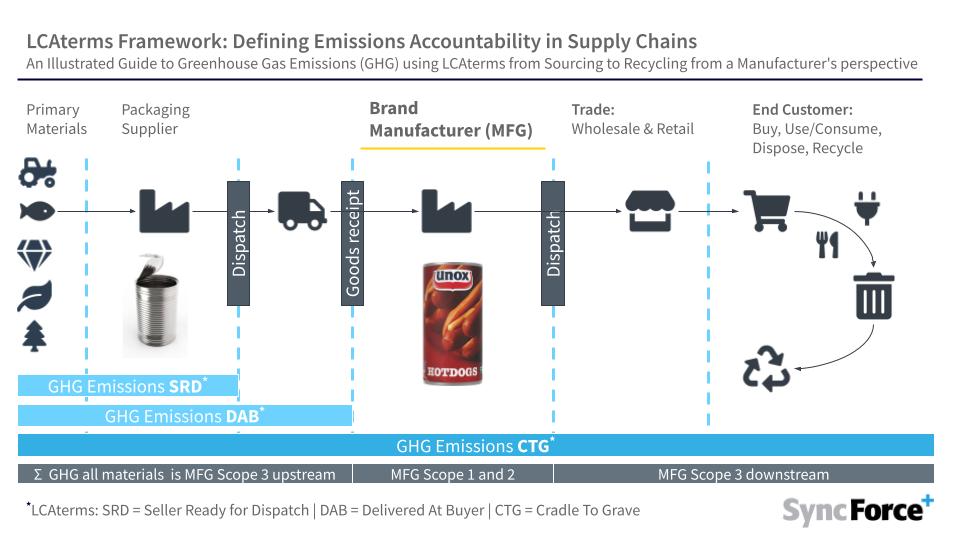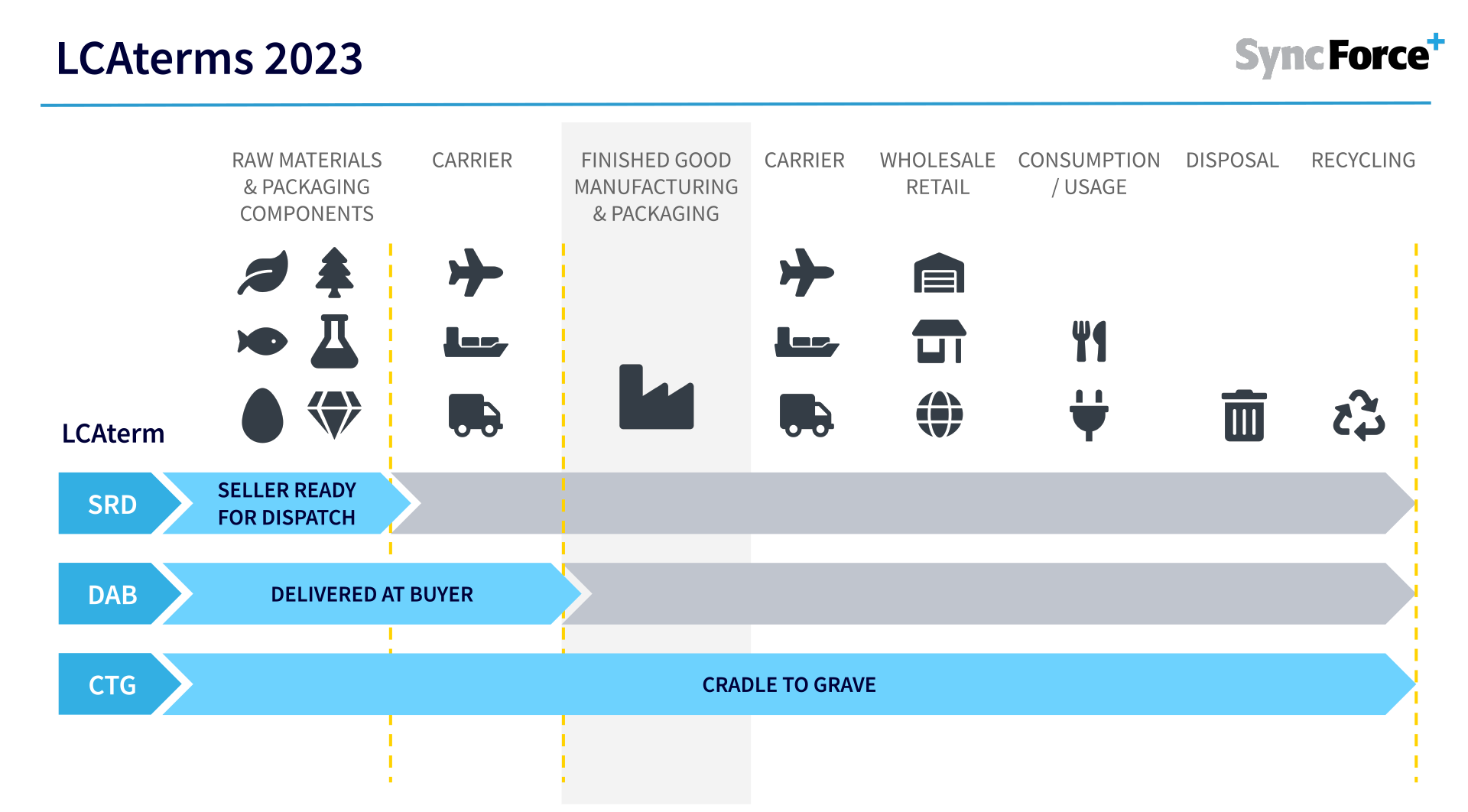
Sustainability ranks as the top concern among our customers and partners, aligning closely with the ever-evolving focus on ESG, LCA, packaging taxes, and upcoming EU regulations like the Packaging and Packaging Waste Directive (PPWD) and the Digital Product Passport. As we navigate these complex requirements, we face numerous challenges around the definitions and standardizations necessary to efficiently receive, process, and share sustainability data.
A key issue we’ve identified is determining the precise scope that a sustainability metric covers, for example, emission values.
Introduction to LCA and Sustainability Challenges
As businesses increasingly embrace sustainable practices, the assessment of product environmental impacts through Life Cycle Assessment (LCA) has gained paramount importance. However, an ongoing challenge is the accurate exchange of upstream Scope 3 emissions data within supply chains. This difficulty arises due to the absence of standardized indicators that precisely specify the life cycle stages covered by the provided values.
Comparison with Incoterms for Clarity
To contextualize this issue, consider the parallels with Incoterms in international trade. While Incoterms clarify responsibilities regarding shipping, risk, and cost, they fall short in addressing nuances in environmental impact data, such as carbon emissions throughout a product’s life cycle.

Proposal of LCAterms and Their Potential Impact
Could LCAterms provide a solution? Imagine a system where terms explicitly define the extent of environmental impact data within the supply chain. Terms like SRD (Seller Ready for Dispatch, akin to EXW) or DAB (Delivered at Buyer, similar to DAP) could indicate whether emission data includes just production and packaging or extends to transportation to the buyer.
Benefits of LCAterms in Supply Chain Management
The implementation of LCAterms could significantly enhance the accuracy of Scope 3 emissions calculations, especially in upstream processes. By summing the Scope 3 DAB values for all materials in a consumer product, we can obtain a comprehensive view of upstream Scope 3 emissions, shaping the Upstream Scope 3 SRD value for retailers.

Challenges and Considerations for Implementing LCAterms
However, challenges exist in developing and implementing LCAterms. Collaboration with suppliers, manufacturers, and sustainability experts will be crucial to ensure effective adoption and overcome potential obstacles.

Exploring Perspectives: The Importance of LCAterms for Sustainability
So, the pressing question emerges: Do we need LCAterms to facilitate sustainability data exchange across the value network? How should these terms be structured, and what challenges might arise in their adoption? Could LCAterms be the key to advancing sustainable supply chain management?


